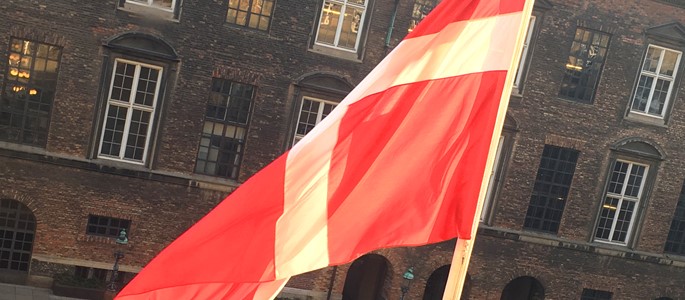Refugees become Danes over time, fortunately
DEBATE: Danish parliament misunderstands the concept of refugees when the focus is on temporary stay. This will create serious problems in the future.
Mattias Tesfaye (S) and a majority of the Danish parliament have adopted the strange notion that there is a limited amount of space for refugees in Denmark – and that we need to send some home to make room for new ones.
Of course, it's not possible to receive an endless number of refugees, but society is dynamic. It changes and adapts constantly. New jobs are created, and a refugee does not take up the space of another.
Even during the two periods when Denmark received the largest number of refugees ever: Bosnians in the 1990's and the Syrians in 2016 - they were relatively easily distributed in the municipalities and do not present a problem today.
The "paradigm shift" says that refugees are only supposed to stay for a few years, and Denmark’s focus must be on return instead of integration. This is also a misunderstanding which will cause serious problems in the future – for the refugees as well as for our society.
Fortunately, we did not kick the Chilean and Iranian refugees out who came in the 1970s, and neither the Yugoslavian ones who came in the 1990s. They are all Danes today, and an important part of society.
But in the future, it will not be that easy. Recently the authorities have revoked hundreds of residence permits for Somali refugees, and Syrians are next. Denmark is the first country in Europe who wants to send refugees back to Bashar a-Assad.
Durable solution is needed
According to the UN, refugees must be offered a durable solution: an opportunity to create a new, safe future – not just a short stay.
This makes sense for two reasons: Firstly, conflicts are rarely short (think of the 30 year-wars in Afghanistan, Somalia and Sri Lanka).
Secondly, you establish roots in the country that receives you, meaning that other humanitarian concerns than a need for protection become important over time – especially for children.
Refugees have already lost everything once, had the carpet drawn away from underneath them, been afraid to lose their lives and had terrible experiences. They started all over, often alone, in a new and unknown place. For a refugee, the most important thing in the world is feeling safe that this will never happen again.
Refugees need security
Danes, comfortable and secure as we are, can't imagine how many refugees are sleepless at night all over the country, their hearts beating with the fear of being sent back to the ruins, the prisons, the dictator, the random bombings.
Last year it was only 238 refugees who could live up to the unreasonably high demands and obtain permanent residence. But the whole integration system is based on long-term stay. It takes time to learn Danish and enter the Danish labour market.
This is in sharp contrast to the idea of a temporary stay – how will it be possible to find the motivation to work to become an active part of Danish society when your permit can be revoked anytime? Where is the incentive for a business to hire a refugee?
And why does education not count on the same level as a job when it comes to obtaining a permanent residence permit? We will create rootless, frustrated people who will weigh down the statistics in a negative way.
It's natural that you arrive as a foreigner for one reason, and then things change over the years and you find yourself in another set of circumstances. But recently it was decided by the parliament that attachment should no longer be considered when it comes to refugees. Job, education, language etc. will no longer count as it did before.
Return is not always possible
The minister says that many Syrians have returned voluntarily, and that we can therefore revoke more permits. But the ones who have returned have usually been staying under provisional conditions in neighbouring countries, and lacking basic rights.
The ones who have returned from Denmark have done it because they were not allowed to bring their close family members here, or because they found it too hard to be accepted and build a dignified life here. And they belong to ethnic and political groups who are not at the highest risk.
Are refugees not supposed to go home and help rebuild their own countries? Yes, for many it's their highest wish to return home. But you can't rebuild a country which is still controlled by a dictator like Assad, or a country in chaos and civil war like Somalia and Afghanistan.
You can send money home to your relatives, which refugees do on a large scale. Rebuilding is only when you have something to offer – for instance starting a business or teaching, which will usually not happen until a refugee has obtained citizenship in the host country.
The number of refugees in the world is rising, and 85% of them end up in the neighbouring countries where there are no resources to take care of them. Denmark has lots of resources, and we should receive a far larger number than today and allow them to stay. In 2019, it was only 2% of all residence permits to foreigners which were given to refugees.
But with the new focus on temporary stay, I will recommend refugees to avoid Denmark and choose other countries in Europe where it's still possible to build a safe future for themselves.
The text was brought by Altinget.dk on August 12th 2020 in Danish.


